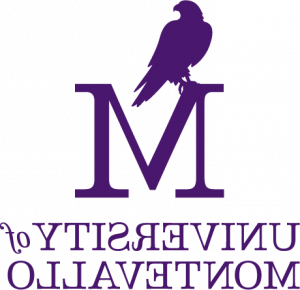History of the Federal TRIO Programs
Most people unfamiliar with TRIO will ask, “What does ‘TRIO’ stand for?” This short history should help to clarify what TRIO is.
TRIO programs were the first national college access and retention programs to address the serious social and cultural barriers to education in America. Previously, policymakers only considered the issue of financing a college education. TRIO began as part of President Lyndon B. Johnson’s War on Poverty.
Johnson’s War on Poverty
The Educational Opportunity Act of 1964 established an experimental program known as Upward Bound. Then, in 1965, the Higher Education Act created Educational Talent Search. Finally, another program, Special Services for Disadvantaged Students, later known as Student Support Services, was launched in 1968. Together, this “trio” of federally-funded programs encouraged access to higher education for low-income students.
By 1998, the TRIO programs had become a vital pipeline to opportunity, serving traditional students, displaced workers, and veterans. The original three programs had grown to seven, adding Educational Opportunity Centers and Veterans Upward Bound in 1972, the Ronald E. McNair Post-baccalaureate Achievement Program in 1986, Upward Bound Math/Science in 1990.
TRIO programs, like Federal Pell Grants, are funded under Title IV of the 1965 Higher Education Act.
For more information on TRIO programs click the following links:
Federal TRIO Programs
Federal TRIO Programs include: Talent Search, Upward Bound, Upward Bound Math/Science, Veterans’ Upward Bound, Student Support Services, Educational Opportunity Centers, the Ronald E. McNair Post-Baccalaureate Achievement Program, and Training Grants. The Federal TRIO Programs are educational opportunity outreach programs designed to motivate and support students from disadvantaged backgrounds and to provide relevant training to directors and staff. TRIO includes five outreach and support programs targeted to serve and assist low-income, first-generation college students, and students with disabilities to progress through the academic pipeline from middle school to Post-baccalaureate programs and one training grant program for staff.
Council for Opportunity in Education
The Council for Opportunity in Education (COE) is a nonprofit organization, established in 1981, dedicated to furthering the expansion of educational opportunities throughout the United States. Through its numerous membership services, the Council works in conjunction with colleges, universities, and agencies that host TRIO Programs to specifically help low-income students enter college and graduate.
Alabama Association of Educational Opportunity Program Personnel
The Alabama Association of Educational Opportunity Program Personnel (AAEOPP) is a non-profit organization designed to bring together into a work and study community those persons who have an active interest in or who are professionally involved in broadening accessibility to and success in formal postsecondary education.
Southeastern Association of Educational Opportunity Program Personnel
The Southeastern Association of Educational Opportunity Program Personnel (SAEOPP) is a non-profit organization of eight states whose members are involved in equal educational opportunity for disadvantaged individuals, while advancing the ideals of student access, persistence and completion of postsecondary education. SAEOPP is dedicated to supporting TRIO Personnel through professional development, education, and activism for TRIO. Our member states are Alabama, Florida, Georgia, Kentucky, Mississippi, South Carolina, North Carolina, and Tennessee.
Mission
The UM TRIO Student Support Services Program is committed to the success of first generation, low-income students, and students with documented disabilities. Our mission is to assist them in successfully completing their postsecondary education, while promoting a supportive institutional climate.
University of Montevallo – TRIO SSS GOALS
Persistence, Performance, Completion
With students always at the center of our work, our primary goal is student persistence, performance, and completion. Everything we do is in service to this goal. We coach students to success! These are the goals that we work to achieve or exceed, each year.
Persistence Goal:
72% of all participants served by the UM TRIO SSS Program will persist from one academic year to the beginning of the next academic year.
Performance Goal:
84% of all enrolled TRIO SSS participants served will meet the performance level required to stay in good academic standing at the University of Montevallo. Good academic standing at UM is defined as a cumulative earned grade point average of at least 2.0 and an accumulated earned credit rate of at least 67%.
Completion Goal:
38% of new participants served each year will graduate from the University of Montevallo with a bachelor’s degree within six years.
